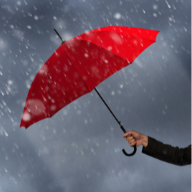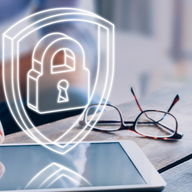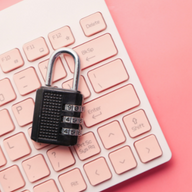Safe in a Storm: Protecting Your Employees with SIKAP

Employment & HR
213 week ago — 5 min read
The Philippines is one of the world’s most disaster-prone countries and when typhoons, floods, earthquakes, and landslides strike, every aspect of society is placed at risk. While one cannot control the forces of nature, one can put into place measures to mitigate the worst effects. Protecting one’s business in such circumstances can be a huge challenge but if one knows how to plan and prioritize, one can be better prepared to face these obstacles.
This is #SafeInAStorm: SIKAP’s series about protecting your business during disaster-related disruptions! These blogs will provide practical tips on boosting your disaster resilience in the different aspects of your business.
Part 1: Protecting Your Employees
Prioritizing employee welfare and safety is the hallmark of an excellent business as they are the building blocks of one’s operations. During a disaster, business owners must ensure that their employees do not bear the brunt of the danger and that those who are potential victims are immediately rescued. Here are some essential tips to remember during a disaster:
Update your company directory
Make sure that all the contact information of your employees is always up-to-date including their mobile phone numbers, email addresses, location details, and emergency contacts. This is crucial during a crisis to ensure that you are able to quickly and effectively reach out to everyone on your team. The directory must be disseminated to all relevant stakeholders so no one will be left behind.
Keep communication lines open at all times
Communication is key to rapidly responding to the needs of your people when they are in most danger and a delayed response might mean the difference between life and death. Make sure that all members of your organization may be contacted right away whether by phone, email, or even social media! Staying in touch will enable you to determine if certain employees are in need of critical services and communicating will help you coordinate with the groups that can swiftly deliver aid.
Check in with your employees regularly
During a disaster, it is paramount to determine the levels of safety and security of everyone on your team. Establish a system of reporting one’s status regularly, with every employee providing crucial details about their situation such as the safety of their physical location (proximity to danger zones such as flood-prone areas, overflowing rivers, etc.), the accessibility of communication tools (landlines, mobile network, Internet connectivity), the availability of utilities (electricity, water), and other relevant information. Not only will this exercise provide you with information to decide on how to rapidly respond to dire cases, it will also be a source of comfort and reassurance to your employees in the midst of stressful situations.
Have your disaster fund ready
Set aside some funds in case of an emergency that you can easily use if you need to keep your employees on payroll or if you need to purchase relief goods or mobilize resources to send to vulnerable team members. Make sure that these financial resources are readily available at any time so that there is minimal delay to delivering essential services.
Coordinate with disaster response partners
Do your research and prepare all the contact information of relevant government agencies and non-governmental organizations that can help during a natural disaster. Make sure the hotlines for your local disaster risk reduction management offices are easily available as well as those of the fire brigade, the weather bureau, the local rescue teams, and other actors. If you have specific contact persons from each organization, even better. This will ensure that you already know who to call when you need to mobilize resources or organize rescues or relief operations for your employees.
These are just some of the basic ways that you can protect your employees during a disaster. Do your best to follow these tips so that your employees will know that you’ve got their backs even when times are toughest.
Stay tuned for more practical tips and advice on how you can keep your business #SafeInAStorm #SIKAPMSME #ResilientMSMES #ResilientPH
To explore business opportunities, link with me by clicking on the 'Invite' button on my eBiz Card.
Image source: canva.com
Disclaimer: The views and opinions expressed in this article are those of the author and do not necessarily reflect the views, official policy or position of GlobalLinker
View SIKAP 's profile
Other articles written by SIKAP By PDRF
155 week ago
Safe in a Storm: Protecting Your Assets
180 week ago
Safe in a Storm: Protecting Your Data
183 week ago
Most read this week
Trending












Comments
Share this content
Please login or Register to join the discussion